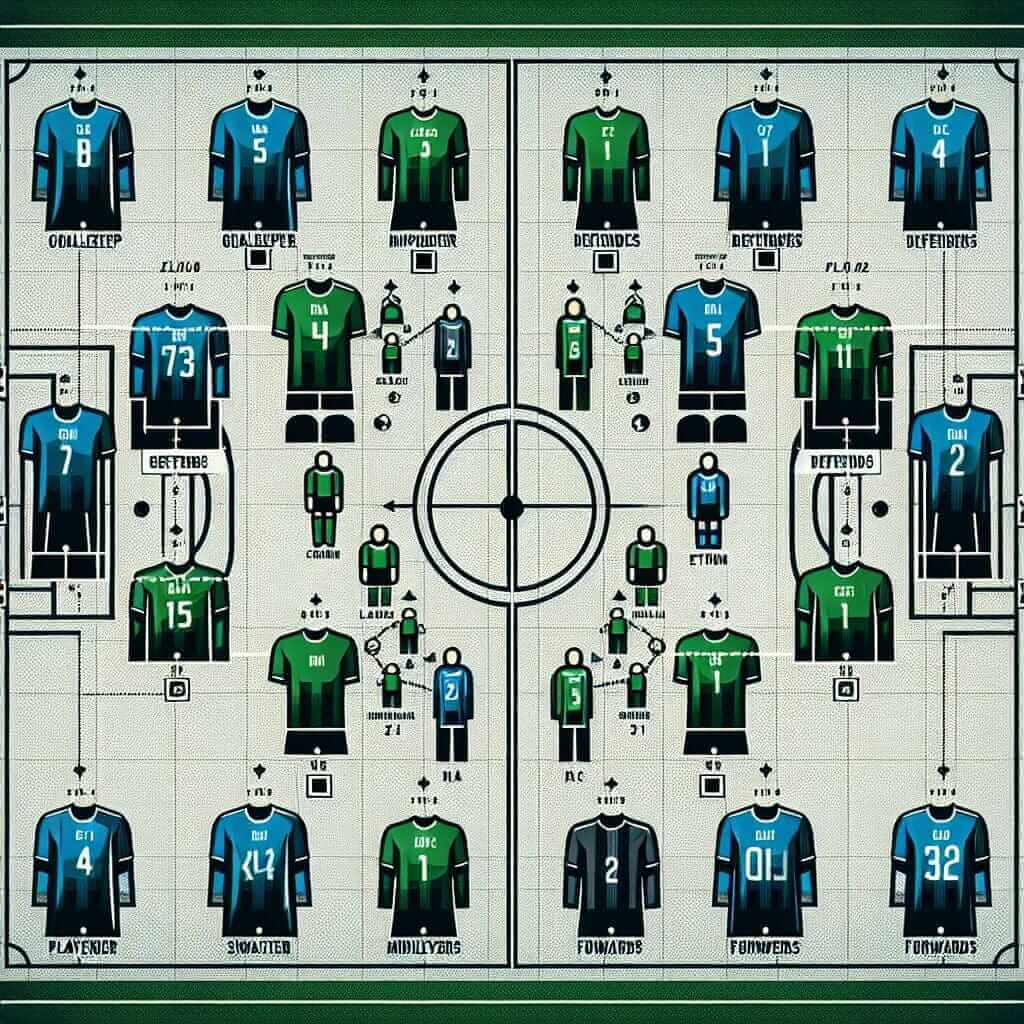As an experienced IELTS instructor, I often find my students struggling to express themselves when it comes to sports, even if they are avid fans! This lack of specific vocabulary can hinder their performance, particularly in the Speaking and Writing sections where fluency and precision are key. Knowing how to describe different player positions in various team sports is not just about showcasing your sporting knowledge; it demonstrates a wider vocabulary range, which is crucial for achieving a high IELTS band score.
Why is Sports Vocabulary Important for IELTS?
The IELTS exam aims to assess your overall English proficiency, and this includes your ability to discuss a variety of topics, including sports. You might encounter sports-related themes in the reading passages, listening sections, or even be asked to describe your favorite sport or athlete in the Speaking test. Having a strong sports vocabulary allows you to:
- Articulate your ideas clearly and effectively.
- Demonstrate a wider range of vocabulary, which is directly assessed in the IELTS.
- Understand and engage with sports-related content in the exam.
- Speak and write more confidently on a topic that frequently appears in the IELTS.
Common Team Sports Positions and Their Alternatives
Let’s break down some common sports positions and explore alternative ways to refer to them.
Football (Soccer)
| Position | Alternatives | Example |
|---|---|---|
| Goalkeeper | Goalie, shot-stopper | The goalkeeper made an incredible save, diving to his left to tip the ball wide. |
| Defender | Full-back, centre-back, sweeper | The defenders formed a solid wall, thwarting the opposition’s attack. |
| Midfielder | Central midfielder, attacking midfielder, winger | The midfielder controlled the pace of the game, dictating the flow of play. |
| Forward | Striker, centre-forward, winger | The forward’s speed and agility allowed him to get behind the defense and score. |
Example in an IELTS context:
Speaking Part 2: “Describe a time you watched a team win an important match.”
“I remember watching Barcelona win the Champions League final. The atmosphere was electric! Messi, their star forward, scored two brilliant goals, and the goalkeeper made some crucial saves in the final minutes.”

Basketball
| Position | Alternatives | Example |
|---|---|---|
| Point Guard | Floor general, ball-handler | The point guard expertly dribbled through the defense and dished out an assist. |
| Shooting Guard | Two-guard, off-guard | The shooting guard was known for his accurate three-point shots. |
| Small Forward | Wing player | The small forward’s versatility allowed him to score both inside and outside. |
| Power Forward | Four-man | The power forward dominated the boards, grabbing numerous rebounds. |
| Center | Five-man, pivot | The center was a towering presence in the paint, blocking shots and scoring easily. |
Example in an IELTS context:
Listening Section: You might hear a conversation about a basketball game where they refer to a player as the “floor general.” Knowing that this is another term for “point guard” will help you understand the context.
Other Sports
Remember, these are just two examples. You can use this same approach to learn vocabulary for other sports like rugby, cricket, hockey, and more. The key is to:
- Familiarize yourself with common positions.
- Learn alternative terms and synonyms.
- Practice using this vocabulary in context.
Tips for Improving Your Sports Vocabulary
-
Be an Active Listener/Viewer: Pay attention to the commentary during games. Commentators often use a variety of terms to describe players and their positions.
-
Read Sports Articles: Regularly reading sports news or articles will expose you to a wide range of vocabulary.
-
Use a Thesaurus: When you encounter a new sports word, look it up in a thesaurus to discover synonyms and related terms.
-
Practice Speaking: Find opportunities to discuss sports in English, either with friends, classmates, or in language exchange groups.
Conclusion
Mastering sports vocabulary can be a real asset for your IELTS journey. Not only does it equip you with the language to discuss a popular topic, but it also showcases your lexical range and fluency, ultimately contributing to a higher band score. So, embrace the world of sports, and let your vocabulary score the winning goal!